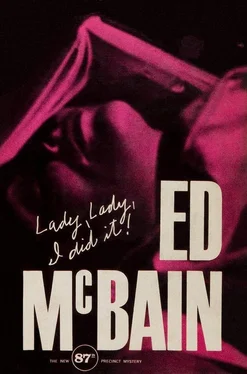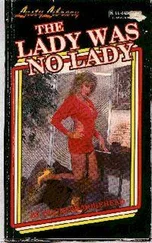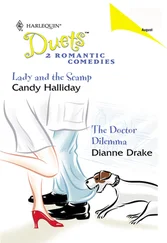“Then it also could have been connected to Bert.”
“Yes, but then why didn’t the killer go after Bert? Why would he kill Claire?”
“I don’t know why. What kind of a crazy twisted bastard would kill four people anyway?” Townsend asked. “Are you trying to apply logic to this? What logic is there? You just told me he was after only one person, for Christ’s sake, but he killed four!”
Meyer sighed patiently. “Mr. Townsend, we haven’t discounted the possibility that someone carrying a grudge against Bert Kling took it out on him by killing your daughter. It’s happened before, certainly, and we’re investigating that possibility. I’m only trying to say that it doesn’t seem to be the most fruitful course we can pursue in this case. That’s all. But, of course, we’ll continue to explore the possibility until we’ve exhausted it.”
“I’d like to think Bert had nothing to do with this,” Townsend said.
“Then please think that,” Carella said.
“I’d like to.”
The room was silent.
“In any case,” Meyer said, “Claire was one of the four people killed. With this in mind—”
“You’re wondering whether Claire was the intended victim?”
“Yes, sir. That’s what we’re wondering.”
“How would I know?”
“Well, Mr. Townsend,” Carella said, “we thought perhaps Claire might have mentioned something that was troubling her. Or—”
“Nothing seemed to be troubling her.”
“Had she received any threatening phone calls? Or letters? Would you know?”
“I work nights,” Townsend said. “I’m usually asleep during the day while Claire is at school or doing casework. We usually have dinner together, but I don’t recall her saying anything about threats. Nothing like that.” He had inadvertently slipped into the present tense in discussing his daughter, casually sidestepping the fact that she was dead.
“What sort of casework did she do?” Carella asked, reverting to the proper tense.
“She works at Buenavista Hospital,” Townsend said.
“What sort of work?”
“Well, you know she’s a social worker, don’t you?”
“Yes, but—”
“She does... well, you know what medical social workers do, don’t you?”
“Not exactly, Mr. Townsend.”
“Well, Claire works—” He stopped suddenly, as if realizing all at once that he had been committing an error in tense. He stared at the detectives, somewhat surprised by his own discovery. He sighed heavily. “Claire worked,” he said, and he hesitated again, giving the word time to set, accepting the knowledge once and for all, “Claire worked with hospitalized patients. Doctors provide medical care, you know, but very often it takes more than that to make a patient well. Claire provided the something more. She helped the patient toward using the medical care, toward wanting to be well again.”
“I see,” Carella said. He thought for a moment and then asked, “Did Claire ever mention any particular patient she was working with?”
“Yes, she mentioned a great many of them.”
“In what way, Mr. Townsend?”
“Well, she took a personal interest in all the people she worked with. In fact, you might say her work was this personal interest, this special attention to a patient’s problems.”
“And she would come home and tell you about these people, is that right?”
“Yes. Stories about them... or... or funny things that happened. You know.”
“Were there times when something happened that wasn’t so funny, Mr. Townsend?”
“Oh, she had her complaints. She was carrying a very large caseload, and sometimes it got a little difficult. Sometimes her temper wore a little thin.”
“Did she mention any specific trouble?”
“Trouble?”
“With patients? With families of patients? With doctors? With anyone on the hospital staff?”
“No, nothing specific.”
“Anything at all? A slight argument? Anything you can remember?”
“I’m sorry. Claire got along well with people, you see. I guess that’s why she was a good social worker. She got along with people. She treated everyone like a person. That’s a rare talent, Mr. Carella.”
“It is,” Carella agreed. “Mr. Townsend, you’ve been very helpful. Thank you very much.”
“Is... is there anything I can tell Bert?” Townsend asked.
“I beg your pardon?”
“Bert. He’s sure to be at the funeral parlor.”
On the way downstairs, Meyer asked, “What do you think?”
“I’d like to hit the hospital,” Carella said. “What time do you have?”
“Ten-thirty.”
“You game?”
“Sarah said to be home by lunch.” Meyer shrugged.
“Let’s do it now, then. It might give us something to go on tomorrow.”
“I don’t like hospitals,” Meyer said. “My mother died in a hospital.”
“If you want me to go alone...”
“No, no, I’ll come with you. It’s just I don’t like hospitals, that’s all.”
They walked to the police sedan, and Carella slipped in behind the wheel. He started the car and then eased it into the light Sunday morning traffic.
“Let’s have a quick rundown while we drive over, okay?” he said.
“Okay.”
“What’s the other team covering?”
“Di Maeo’s checking out the 1954 bookstore holdup. Our records show the thief was released from Castleview in 1956 and returned to Denver. But he wants to make sure the guy didn’t come back here. He’s checking on some of his buddies, too, to make sure they weren’t involved in the Friday shooting.”
“What else?”
“He’s going over every arrest Bert ever made, sorting them out, putting a pickup-and-hold on anybody who looks like a possible. He’s plenty busy, Steve.”
“Okay. What about Willis and Brown?”
“Willis is trying to locate family or friends of the fourth victim. What the hell was his name?”
“La Scala.”
“That’s right,” Meyer said. “Anthony La Scala.”
“How come Italians are always getting shot?” Carella asked.
“They’re not.”
“On The Untouchables they’re always getting shot.”
“Well, that show is stacked,” Meyer said. He grinned slyly and added, “Did you catch that one?”
“I caught it.”
“Stacked. Robert Sta—”
“I caught it,” Carella said again. “Has Willis found an address for this La Scala character yet?”
“Not yet.”
“That’s pretty peculiar, isn’t it?”
“Yeah, pretty peculiar.”
“Makes him sound a little shady.”
“All your countrymen are shady,” Meyer said. “Didn’t you know that? Don’t you watch The Untouchables?”
“Sure I do. You know what I noticed?”
“What?”
“Robert Stack never smiles.”
“I saw him smile once,” Meyer said.
“When?”
“I forget. He was killing some hood. But I distinctly saw him smile.”
“I never saw him smile,” Carella said seriously.
“Well, a cop’s life is a tough one,” Meyer said. “You know what I noticed?”
“What?”
“Frank Nitti always wears the same striped, double-breasted suit.”
“That’s ‘cause crime doesn’t pay,” Carella said.
“I like that guy who plays Nitti.”
“Yeah, I do, too.” Carella nodded. “You know something? I don’t think I ever saw him smile either.”
“What’s with you and this smiling business?”
“I don’t know. I like to see people smile every now and then.”
“Here,” Meyer said. “Here’s a smile for you.” He grinned from ear to ear.
Carella said, “Here’s the hospital. Save your teeth for the Admissions nurse.”
Читать дальше

![Дэвид Лоуренс - Lady Chatterley's Lover [С англо-русским словарем]](/books/26613/devid-lourens-lady-chatterley-s-lover-s-anglo-thumb.webp)










